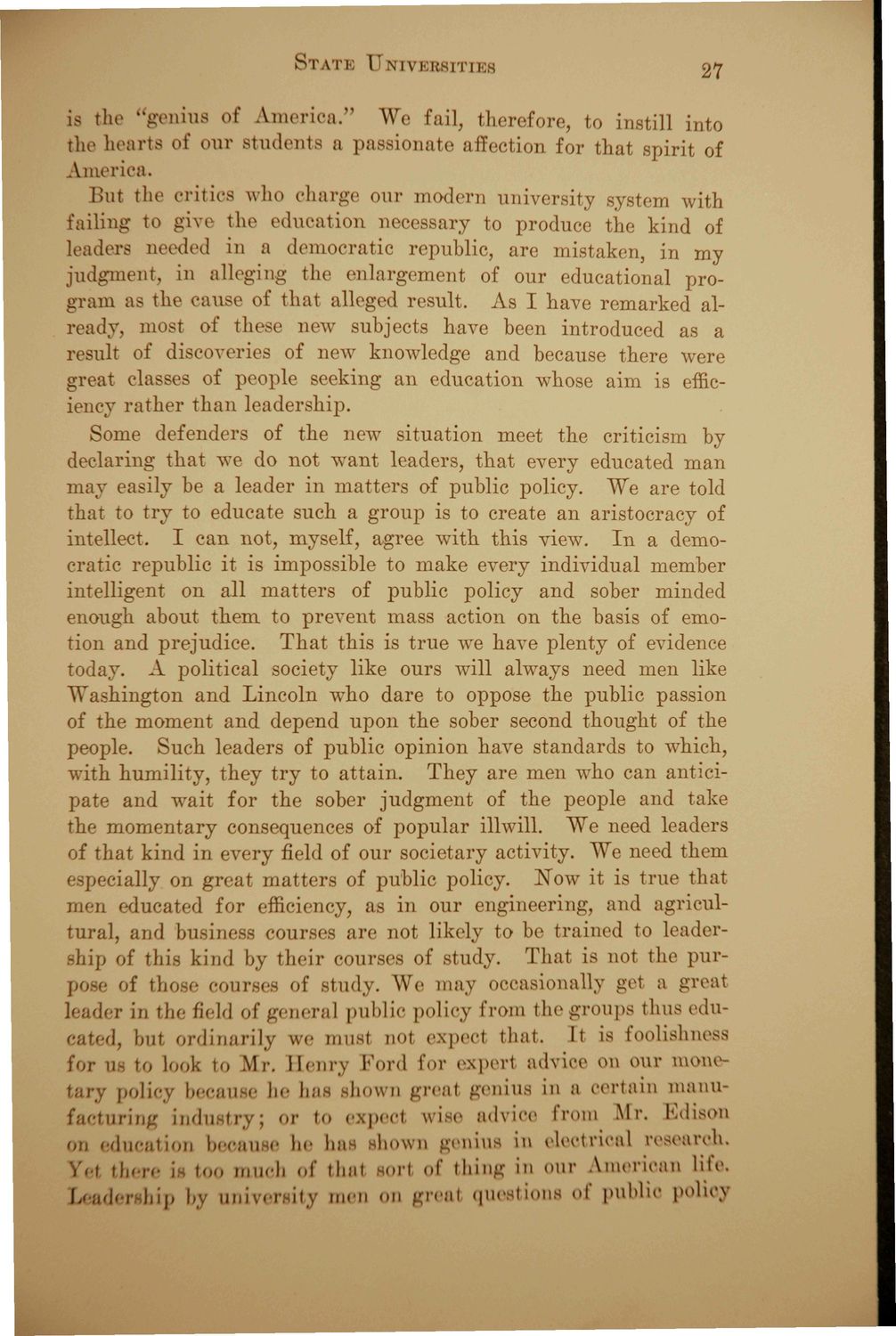| |
| |
Caption: Booklet - Kinley Speech Cirrculum and Consequences (1924)
This is a reduced-resolution page image for fast online browsing.

EXTRACTED TEXT FROM PAGE:
STATU CTNIVKRRITIES 27 is the "genius of America." We fail, therefore, to instill into the hearts of our students a passionate affection for that spirit of America. But the critics who charge our modern university system with failing to give the education necessary to produce the kind of leaders needed in a democratic republic, are mistaken, in my judgment, in alleging the enlargement of our educational program as the cause of that alleged result. As I have remarked already, most of these new subjects have been introduced as a result of discoveries of new knowledge and because there were great classes of people seeking an education whose aim is efficiency rather than leadershipSome defenders of the new situation meet the criticism by declaring that we do not want leaders, that every educated man may easily be a leader in matters of public policy. We are told that to try to educate such a group is to create an aristocracy of intellect. I can not, myself, agree with this view. I n a democratic republic it is impossible to make every individual member intelligent on all matters of public policy and sober minded enough about them to prevent mass action on the basis of emotion and prejudice. That this is true we have plenty of evidence today. A political society like ours will always need men like Washington and Lincoln who dare to oppose the public passion of the moment and depend upon the sober second thought of the people. Such leaders of public opinion have standards to which, with humility, they try to attain. They are men who can anticipate and wait for the sober judgment of the people and take the momentary consequences of popular illwill. We need leaders of that kind in every field of our societary activity. We need them especially on great matters of public policy. JSTow it is true that men educated for efficiency, as in our engineering, and agricultural, and business courses are not likely to be trained to leadership of this kind by their courses of study. That is not the purpi of those courses of study. We may occasionally get a great 1 der in the field of general public policy from the groups thus edu< cated, hut ordinarily we must not expeet that. It is fooHshneS for h to look to Mr. Henry Ford for ex perl advice On ouv monetary poli' because ho has shown groat genius in a certain manufacturing industry; or to expect wise advice from Mr. Edison on education hecau.se he has shown genius in electrical research, YVt then- is too much of that sort of thing in onr American life, U hi,, by univer ity men on greal questions of public policy
| |